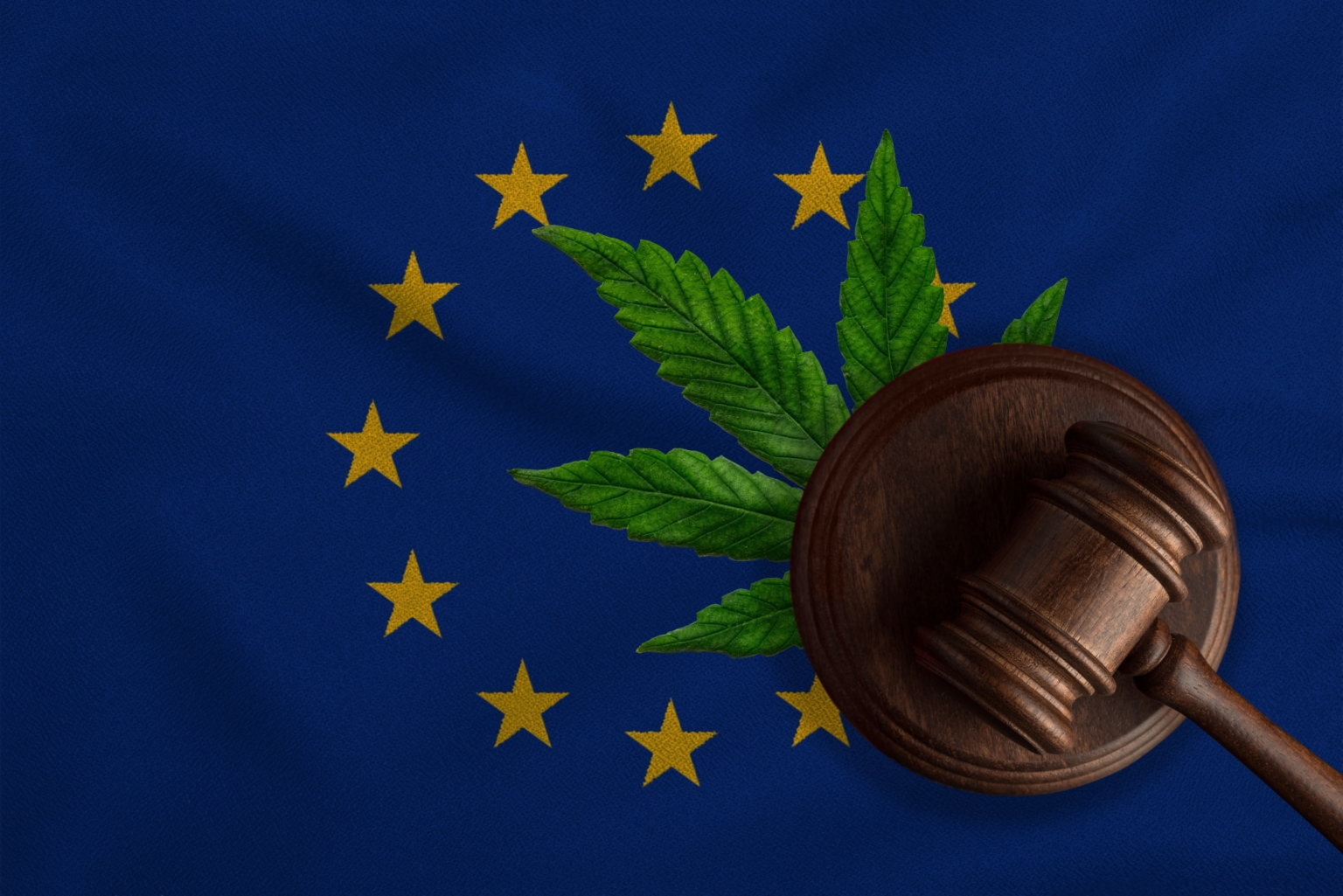Yes, miracles do exist in the EU… or at least they could. Right now, there are discussions about a industrial hemp law in Europe. Hemp is one of humanity’s oldest cultivated plants – and in recent years, it has been making a quiet comeback across Europe. Fibers, seeds, and stalks are already recognized as agricultural products. But the hemp blossom has long remained a legal headache.
The European Commission now wants to change that. From 2027 onward, the blossom of industrial hemp is set to be officially recognized as an agricultural product within the framework of the Common Agricultural Policy (CAP). That would be a milestone for farmers, processors, and the entire hemp value chain.
The answer to a never-ending story: From 2027, hemp flowers will finally receive the status they deserve – as an official agricultural product in Europe
For decades, the hemp blossom has been burdened by prejudice. It was lumped together with psychoactive cannabis, even though industrial hemp is strictly regulated and in Germany may contain no more than 0.2% THC – far from any intoxicating effect.
The result? Subsidies were only available for seeds, fibers, and stalks, while blossoms were treated as an “undesirable by-product.” A raw material with huge potential – for food, cosmetics, wellness, and innovative materials – was effectively blocked. We recently reported on a similar problem regarding tax stamps for THC.
What Could Change in 2027
The planned EU regulation could flip the script:
- Farmers will finally be able to use the entire plant profitably.
- Businesses will gain a reliable investment framework.
- The market will become broader, more transparent, and more stable.
Countries like Germany, France, and Poland, where hemp cultivation is already established, stand to benefit the most.
Hemp and Sustainability: A Perfect Match
Hemp is the poster child of sustainable agriculture:
- it requires little fertilizer,
- its deep roots improve soil quality,
- and it binds large amounts of CO₂.
Recognizing the blossom as an agricultural product will encourage farmers to expand hemp cultivation across Europe – a win for climate goals, biodiversity, and regional economies.
The Paradox in Germany
While the EU is making progress, Germany is stuck in contradictions. Recreational cannabis is now legal, but CBD products remain in a legal gray area.
A recent example highlights the absurdity:
A Bavarian organic farmer was forced to shut down his business because CBD oil is still classified as a medicinal product in Germany. This means not only producers, but also thousands of CBD retailers are under constant pressure. This legal chaos destroys livelihoods and blocks innovation – despite the clear distinction between industrial hemp and psychoactive cannabis.
Why We Need a Separate Hemp Law
The current situation is paradoxical and unsustainable. Industrial hemp is a safe, sustainable, future-proof crop, and it should no longer be trapped by restrictive regulation.
The solution: A dedicated hemp law that clearly separates hemp from cannabis, giving farmers, producers, and retailers long-overdue legal certainty.
Only then can we:
- secure investments,
- protect livelihoods,
- and unlock the full potential of hemp.
Because let’s be real: Germany is putting itself at a competitive disadvantage without clear hemp regulation.
Hemp as an Economic Factor
This isn’t just about sustainability – it’s about economics. The global hemp industry is already a multi-billion dollar market, spanning CBD products, cosmetics, food, and textiles. Countries like France and Switzerland are positioning themselves as pioneers.
And Germany? Instead of creating security for investors, farmers and retailers are bogged down in bureaucracy. That’s not only unfair – it’s economically disastrous. Without clear rules, Germany is sidelining itself, while other nations create jobs, foster innovation, and collect tax revenue.
Time for Clarity and Fairness
Recognizing the hemp blossom as an agricultural product within a European hemp law from 2027 would be an important step toward normalization. But without national legislation to match, the industry remains stuck in uncertainty. Germany and other EU states must act now. Because one thing is more than a fact but a reality: Hemp is not a drug – it’s a raw material for the future. CBD IS OUR MISSION… and it will always be.
